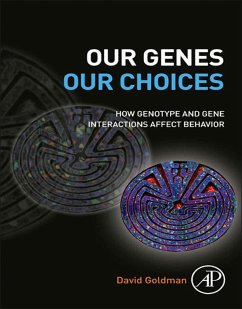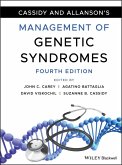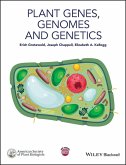Dieser Download kann aus rechtlichen Gründen nur mit Rechnungsadresse in A, B, BG, CY, CZ, D, DK, EW, E, FIN, F, GR, HR, H, IRL, I, LT, L, LR, M, NL, PL, P, R, S, SLO, SK ausgeliefert werden.
"...the complexity of human behavior and a person's ability to choose is explained as deriving from a relatively small number of genes which direct neurodevelopmental sequence. The author uses judicial, political, medical, and ethical examples to illustrate that this lifelong process is guided by individual genotype, molecular and physiologic principles, as well as by randomness and environmental exposures we choose and do not choose." --Doody.com, April 2013
"In a bold, new integrative treatment of the confusing facts and fictions about human behavior and genetic determinism, David Goldman has provided a user-friendly death to determinism and a rebirth of genetic probabilism. He uses his breadth and depth of neuroscience experience to optimize the necessary reductionism for understanding violence, impulsivity, depression, anxiety, and personality variations while explaining the newest technologies of the researcher with access to the laboratories of the National Institute of Health and his colleagues. He bravely confronts the numerous ethical dilemmas that arise when dealing with new knowledge about our genetic makeup and their implications for good and evil. Drawing on his personal exposure to mental disease in his own family, his sensitive and energized writing reminds me of Sylvia Nasar s explication of "A Beautiful Mind", now giving us a beautiful genome from a self-described "behavioral genomicist." We are treated to an insider s knowledge about the work and hoopla about a gay gene and what may be a better conceptualization closer to the facts. Freed from the constraints of journal writing with its 3 to 6 page shackles, Goldman tackles the utility of race as a construct without racism, communist ideology in science, insurance discrimination against the mentally ill, free will, and even pedophilia. His work provides essential reading across the humanities, social and medical sciences, and the courtroom. As fascinating as any whodunit, he tries to account for the origins of our behavioral outcomes, for good or for evil or for mental anguish -was it genes, was it environment or culture, or bad luck, or a conspiracy among some subset of culprits? I won t give it away -read the book." --Irving I. Gottesman Ph.D., Hon.FRCPsych, Bernstein Professor in Adult Psychiatry & Senior Fellow, Department of Psychology University of Minnesota & Sherrell J. Aston Professor of Psychology Emeritus, University of Virginia









